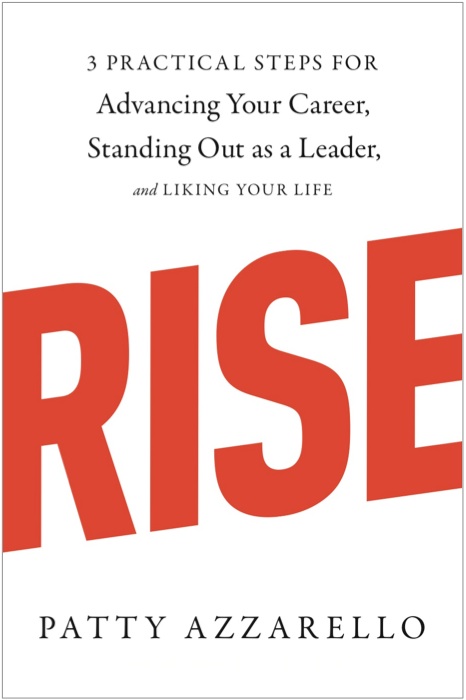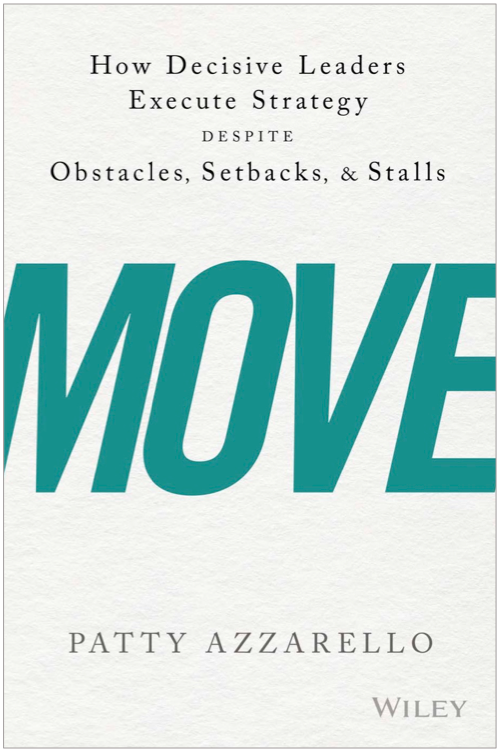Harsh reality #1
As much as you’d like to believe that good work should stand on it’s own, it doesn’t.
Building credibility and trust is essential.
But you can’t have credibility if you are invisible.
You also can’t have credibility if you are annoying!
People with high credibility get more done.
They face less challenges to their honor and their budget. They face less stupid questions.
They get to work faster because they don’t have to slow down to deal with attacks and doubts about their decisions, plans, investments, and actions.
This is what I mean when I talk about DO Better, LOOK Better and CONNECT Better in my book. Good work is not enough – don’t forget the LOOK Better part.
How to be not-annoying
I want to be clear, I am never advocating creating a publicity campaign for your career instead delivering excellent results. (We all know people who promote themselves without delivering good work, and we don’t like them.)
You must deliver excellent results first. But then put those results where others can see them.
As long as the visibility is based on good work (DO Better) it is not annoying.
Not only is it not annoying, it creates value for others. People like to be kept in the loop. They like to know what is going on. If you make them aware of your team’s good work, they appreciate it.
Stakeholders & Influencers
In my Personal Leadership workshops I talk about being visible with stakeholders and influencers.
Your stakeholders are the people who depend on your work in some fashion, your boss, your team, your peers, and all the people in the chain of events that your work touches.
Your influencers are people who may not have a stake in your work, but have a stake in your career. People like your boss’s peers, and your bosses counterparts in other organizations.
Harsh reality #2
The people whose names are known get more goodies than the people who are invisible.
Here is an example. I have been in many executive staff meetings (think about the meeting you boss or your boss’s boss goes to) where some juicy benefit is being discussed – a promotions, a bonus, a special project… I often knew all of the people a level or two down being discussed and considered — so I had a clear view of who was most competent and deserving.
I can tell you that the person who got the win, was not typically the one who was most deserving. It was the one whose name was known by most of the people in the room.
Ouch!
Is this about being false?
Many people feel that if the goal is to gain visibility on purpose, that it feels false, shallow, showing off, or political. (Or annoying).
Because you need to communicate on purpose, by definition people sometimes feel that just because you are doing it on purpose it is false or forced.
There are two reasons you need to communicate on purpose to build credibility and visibility:
1. If you don’t communicate with people on purpose, you won’t do it at all. It is not part of your job description and your job will fill as much time as you give it. Especially if you are more comfortable putting your head down and working than you are communicating and connecting with people.
2. Just because you communicate on purpose, doesn’t mean it is not valuable, or false.
How to be genuine and add value
With these influencers, if the real goal is just to be visible, and they really don’t have a stake in your work, how can you make yourself visible and add value, if your work has no direct value to add to them?
Here are some ways to be genuine, add value, and get your name known (and build credibility) – all without being annoying or false.
1. Actually add value. Find a way to add value. Just because your job doesn’t directly serve someone, doesn’t mean that you can’t add value. But you have to do some homework and listen. Learn what your influencers care about and worry about. If you find a way to make a contribution, share an idea or offer a bit of help, you are adding real value.
2. Get your boss to invite you to the staff meeting s/he attends. When your boss asks you to prepare information to be presented to upper management, ask if you can go to the meeting with your boss and be the one to present it. All bosses should do this for their top performers. If your boss is not doing it they may just not have thought of it. Once you get there then don’t waste the opportunity. Don’t just present data, perform.
3. Say “thank you”. Send a message to a VIP and tell them that you really appreciate something they said or did. Let them know how it impacted you, what you did with the insight, and what the result was. Most executives get very few “thank you for doing a great job” messages. It will stand out as long as it is sincere and well thought through. Don’t be lazy about this and make a vague gesture. Be concrete and specific.
4. Ask for help. This is a great way to make a connection with a senior person. Send them a note and ask for 10 minutes of their time to get some coaching or advice on something they are expert in. If you are very clear about what you are after, and make it clear you only want a short amount of time, most will say, yes. You will score points for being interested in them, and they will then know who you are.
5. Offer non-business ideas. Executives are people too. Know their interests and hobbies. Send a photo from a scuba dive trip or a bike trip and say you found an outstanding place or resource. “I know you are interested, so I wanted to pass this along”.
6. Conspiracy. I loved a story about a group of women who wanted to get visibility in a large corporation. They all worked in different groups. They agreed that they would each talk each-other up across organizations to get their names known and build credibility. “You know Mary B did something remarkable last month…” It worked. Over the next two years they all got promotions.
Is is political?
If this still all sounds political to you – making a connection with someone who is not directly dependent on your work, you have a choice. You can call it political and use that as an excuse to stay isolated and invisible, or not.
My view is that if your intentions are honorable—if you are creating visibility based on excellent results, and your goal is to add value, you are doing a positive thing.
The reality is that you will have a much harder road ahead of you, and you may even get stuck or sidelined in your career if you don’t make the effort to LOOK Better.
Was this useful?
If you found this article useful, please help me share it (share button below) with others and encourage them to subscribe to this Blog for free.
About Patty
Patty Azzarello is an executive, best-selling author, speaker and CEO/Business Advisor. She became the youngest general manager at HP at the age of 33, ran a billion dollar software business at 35 and became a CEO for the first time at 38 (all without turning into a self-centered, miserable jerk)
You can find Patty at www.AzzarelloGroup.com, follow her on twitter or facebook, or read her book RISE…3 Practical Steps for Advancing Your Career, Standing Out as a Leader, AND Liking Your Life.




